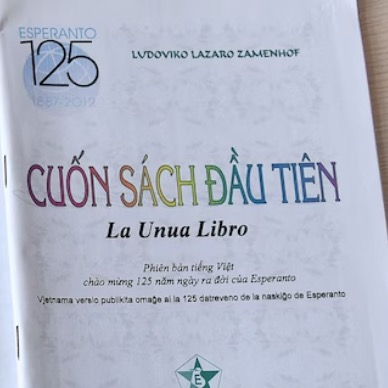AJ Four Ways:
Text Only (by date) | headlines only
- An Early Review of My New Wagner Novel

An early review of my forthcoming novel “The Disciple: A Wagnerian Tale from the Gilded Age,” by Hans Rudolf Vaget, appears in the current issue of “Wagner Notes” — the journal of the Wagner Society of New York (pp. 11-12). The book is already available for purchase (with a discount)
- Artistic Programs Manager (Part Time)
Gibney seeks a highly organized, dance-fluent professional to support the Founder, Artistic Director & CEO across the artistic and programmatic work of the organization, spanning Company, Center, and Community Action. The role offers close exposure to artistic planning and program development conversations within a multi-program dance organization managing concurrent performances and initiatives year-round.
The ideal candidate is a strong writer and critical thinker who can produce clear written materials, track booking and artistic communications, manage multiple workstreams, and keep commitments moving with strong follow-through. Responsibilities include drafting correspondence and program materials; tracking presenter communications and deadlines; capturing meetings and translating discussions into action items; coordinating scheduling; conducting targeted research (artist and field context, repertoire research, comparable initiatives); and maintaining organized documentation and CRM records.
This is a hands-on, in-person role requiring intellectual engagement with artistic content alongside disciplined execution. The position is designed as a growth-track role, with potential to expand to full-time based on demonstrated capacity and sustained initiative.
Requirements/Qualification
- Demonstrated excellence in writing and editing; ability to produce clear, well-structured professional documents quickly
- Strong organizational systems and proven experience tracking multiple deadlines and communications simultaneously
- Relevant professional experience supporting artistic, programmatic, or production work in a performing arts or mission-driven organization.
- Evidence of supporting a senior leader, artistic director, or producer in a complex organization
- Demonstrated knowledge of the contemporary dance field and genuine engagement with artists and repertory
- Ability to synthesize research, notes, and conversations into concise written summaries and action steps
- Comfort working at a steady pace in a high-activity environment
- Proficiency with Google Workspace and familiarity with task-tracking tools
Details
- 28 hours/week (primarily Monday–Friday, 10am–6pm)
- Salary: $46,550 annually (0.7 FTE; equivalent to $66,500 full-time annualized)
- In-person, New York City
- Part-Time Benefits (PTO, Workers Comp, Unemployment Insurance, Paid Family Leave)
- Full-Time Potential: Path to full-time exempt ($66,500) after 6-month review if performance, capacity, and organizational needs align.
Application Requirements
Please submit a resume, cover letter, three professional references, and one original writing sample (2–5 pages). Writing samples may include a briefing memo, research summary, program proposal, grant narrative, or similar professional writing authored solely by the applicant.
Incomplete submissions will not be considered.
Submit materials to executive@gibneydance.org.
- Good Morning
It took 144 years, but the central tower of Gaudí’s Sagrada Familia is finally complete (ART News) — a milestone for a building that has outlasted every assumption about how long art should take. Meanwhile, the Vatican is cleaning human sweat off Michelangelo’s Last Judgement, a chalky residue left by the millions of bodies that have pressed into the Sistine Chapel over the centuries (Associated Press). The things we make endure; the cost of our attention to them is more literal than we think.
San Francisco Ballet has pulled out of its Kennedy Center performances, the latest arts organization to step back from Washington’s political weather (San Francisco Chronicle). In Portland, a different kind of institutional crisis: protesters are fighting city council over the fate of the earthquake-unsafe Keller Auditorium, warning that abandoning its 3,000 seats would leave a hole in the heart of downtown (Oregon ArtsWatch). And at 30, Klaus Mäkelä takes over the Chicago Symphony with a curiosity that extends well beyond music (Chicago Sun-Times).
Neil Sedaka has died at 86 — a classical prodigy who became a pop fixture across seven decades (The New York Times). And the Library of Congress has surfaced what may be the first robot ever filmed — a 45-second Méliès short from 1897 that feels remarkably timely (NPR).
All of our stories below.
- The Actors Awards Live Stream With Updated Winners And More
The awards formers known as the SAG Awards stream live on Netflix on Sunday night. Though there are both TV and movie nominations, Oscar watchers are aware that “the guild’s awards are usually one of the most accurate bellwethers for the Oscars.” – Los Angeles Times
- A Day At The Art Institute With The New 30-Year-Old Conductor Of The Chicago Symphony
Klaus Mäkelä is “stepping into one of the most visible cultural perches in the city and in classical music at large. He appears to bring to his new job in Chicago a curiosity about the arts that goes beyond his own medium of music.” – Chicago Sun-Times (Archive Today)
- The Vatican Has Removed What ‘A Chalky White Film Of Salt’ Coating The Last Judgement
That is to say, people’s sweat had gotten all over Michelangelo’s masterpiece, and now it’s being cleaned off while the sweat accumulates on a screen. – Associated Press
- The Debate Over What To Do With Portland’s Earthquake-Unsafe 3,000-Seat Theatre
Protesters have begun telling the city council exactly what they think of the idea to abandon the big theatre. “If you don’t renovate the Keller, it has no other use. … The only other choice is demolition, which would leave a hole in the heart of downtown.” – Oregon ArtsWatch
- The Library Of Congress Has Found The Likely First Depiction Of A Robot On Screen
“The 45-second-long, one-reel short Gugusse et l‘Automate – Gugusse and the Automaton – was made nearly 130 years ago. But the subject matter still feels timely.” – NPR
- When The Reviewer Isn’t Sure If The Play Is Great Or Terrible
“There is a way to describe this show that will make it seem, at worst, exactly like every cliché of venturing into Brooklyn to see a one man play/spoken word poem/performance piece in a small black box off the L or G train.” – Culturebot
- Millions Of People Are Hooked On ‘Microdramas,’ With Episodes That Last About One Minute
On a K-microdrama set, “filming was moving at breakneck speed. Everything was shot in vertical mode, and nothing was subtle.” – BBC
- How The BAFTAs And The BBC Absolutely Bungled Their Response To A Racist Slur
“Black people and people with Tourette’s have been grappling with the ugly language and the fallout from a night that was supposed to be a celebration.” – The New York Times
- The Los Angeles Olympics Logo Needs To Settle Itself Down
“If you’re going through all the trouble to create what I assume will be hundreds of logos by the time the games roll around, why would you not brand LA28 using ‘LA’ as a customized emblem? Why is it only the ‘A’ that changes out?” The answer may surprise you. – Torched LA
- Paul Zelevansky’s Absurdist Tale of ‘Monkey & Man’<a href="https://www.artsjournal.com/herman/2026/03/paul-zelevanskys-absurdist-tale-of-monkey-man.html" title="Paul Zelevansky’s Absurdist Tale of ‘Monkey & Man’” rel=”nofollow”>
 It began as a performance piece. That was a long time ago . . . 1985, to be precise, in Brooklyn. The author presented Individual stories as performances and installations, which were videotaped. The texts also began appearing in little magazines.
It began as a performance piece. That was a long time ago . . . 1985, to be precise, in Brooklyn. The author presented Individual stories as performances and installations, which were videotaped. The texts also began appearing in little magazines. - Neil Sedaka, Composer And Songwriter Of So Many Pop Hits, Has Died At 86
Sedaka “went from classical music prodigy to precocious songwriter to teenage idol to pop music fixture in a celebrated career that spanned seven decades.” – The New York Times
- Dear Sony, Please Stop Trying To Make Spider-Man Happen Without The Main Character
“For those fortunate enough to have missed these films, Sony’s Spider-Man Universe is, or was, a series of movies about people (mostly villains or antiheroes) who have at some point met the masked wallcrawler in the comics. Spider-Man himself does not appear in them.” – The Guardian (UK)
- The Snow Sculptures Of New York’s Latest Storm
“Collaboration was key. What came first? The snow baby sitting on the bench or the lounging mermaid beside him? Did the same person who built the snow pyramid also build the snow sphinx?” – The New York Times
- How, And Why, Tracey Emin’s Bed Shocked The Art World
The work “was shortlisted for the prestigious Turner Prize and exhibited in Tate Britain’s stately gallery: a dishevelled divan with stained sheets, strewn and surrounded with personal detritus such as contraceptives, slippers, bloodied period pants, empty vodka bottles, Polaroid selfies, an overflowing ashtray.” – BBC
- Bridgerton Has Been Trying To Figure Out What To Call An Orgasm
“It felt like ‘orgasm’ wasn’t a word that was used in that time period. … It needed to be a word that sounded right coming out of Francesca’s mouth over and over again.” – CBC
- And Just Like That, 144 Year After Construction Began, Sagrada Familia’s Central Tower Is Finished
“Construction is expected to continue for a decade or so, but The Guardian called it ‘nevertheless a day full of emotion for a city that has lived with Gaudí’s unfinished work for generations.’” – ART News
- Cambodia Gets Back Dozens Historic Artifacts Allegedly Looted In British Art Dealer’s Scheme
“The artifacts were described as dating from the pre-Angkorian period through the height of the Angkor Empire, including ‘monumental sandstone sculptures, refined bronze works, and significant ritual objects.”’ – Yahoo (AP)
- Firefighters Rescue Rare Books From A Library On The Cliff Edge After Landslide
“Firefighters drilled through the wall of a building behind the structure and entering for minutes at a time, strapped the bookcases together and hauled them backwards to reach the books.” – The Guardian (UK)
- The Kentucky Optical Shop Owner Who Was Also One Of The Twentieth Century’s Best, Strangest Photographers
“Often dark (literally and figuratively), surreal, sometimes playful and at other times sinister, his pictures stunned and sometimes perplexed viewers with their wild, poetic strangeness.” – Undermain Arts
- After Internal Consideration And Exterior Pressure, San Francisco Ballet Pulls Out Of Kennedy Center Performances
A company representative wrote, “SF Ballet looks forward to performing for Washington, D.C. audiences in the future.” – San Francisco Chronicle (Yahoo)
- AJ Chronicles: The Battles for Who gets to say what Culture Is
- Events and Donor Fulfillment Associate – Paul Taylor Dance Company
Events and Donor Fulfillment Associate
Position Overview:
We are seeking a highly organized and motivated individual to join Paul Taylor Dance Company as an Events and Donor Fulfillment Associate. The Events Associate will play a key role in planning, managing, and executing the Company’s annual series of events and donor fulfillment initiatives, including our annual November gala. This position requires excellent project management skills, a strong understanding of event planning, budgeting, and marketing, as well as the ability to hold donor information in strict confidence and to work collaboratively with a diverse group of stakeholders.
Job Title: Events and Donor Fulfillment Associate
Department: Development
FLSA Status: Exempt
Employment Status: Full-Time
Reports to: Senior Director of Advancement
Salary: Commensurate with experience, the salary for this position is $67,000.General Responsibilities:
Event Planning & Support
● Lead in executing and producing patron dinners, donor receptions, studio events, open rehearsals, November gala for 400 guests, Board events, and special campaign events.
● Coordinate event invitations, guest lists, and RSVP lists.
● Work closely with the development team to ensure prompt creation of event materials.
● Assure efficiency for internal and external event execution.
● Oversee events (mornings, nights, and some weekends required with three full weeks of extended workdays during the Lincoln Center performance season in November).
● Assist with and coordinate logistics support for Board events and Taylor-on-the-Road trips, including coordination with venues and vendors; hotel, restaurant, and travel logistics; tracking and coordination of special requirements for guests and hosts; planning, confirmation and follow-up communications.Vendor & Production Coordination
● Oversee contracts and invoices for clients pre- and post-events.
● Host vendor site visits.
● Support vendor activity regarding load-in/out, set-up in designated areas, and adherence to all event guidelines.
● Conduct research for site rentals and potential vendors.Community Relations & Internal Communications
● Field phone calls and e-mails related to event inquiries.
● Track and share project timelines, calendars, check lists, work requests and memos to support internal communications and ensure timely delivery of work product.Development Operations & Records Management
● Maintain accurate records in databases and shared drives.
● Collaborate with the development team to manage database for gift entry, ticket sales, and acknowledgement of event-related gifts.
● Track event revenue and expense budgets.Qualifications:
● 5+ years experience in arts management, event planning, or a related field (or equivalent experience)
● Proven experience in project management, preferably in the arts or nonprofit sector
● Exceptional organizational and time management skills, with the ability to multitask and prioritize effectively
● Excellent interpersonal and communication skills, with the ability to work collaboratively with diverse teams and stakeholders
● Knowledge of event planning and production, including budgeting, logistics, and technical requirements
● Familiarity with marketing and promotion strategies, including digital marketing and social media platforms
● Familiarity with CRMs and data management
● Familiarity with social media platforms and Google suite
● Passion for the arts, particularly dance, and a commitment to community engagement
● Ability to work flexible hours, including evenings and weekends, as required by event schedulesBenefits:
Employee health and dental insurance covered; 10 days PTO in the first year; retirement savings matched up $1,000; other benefits and services provided through PEO.
Start Date: April 1, 2026 or as soon as possible thereafter
About Paul Taylor Dance Company:
Founded by choreographer Paul Taylor in 1954, Paul Taylor Dance Company is a premier institutional center for American modern dance. Under the artistic direction of Michael Novak, Paul Taylor Dance Company honors Taylor’s groundbreaking legacy and invests heavily in the future of the art form, creating a repertory that speaks directly to contemporary times and amplifying new voices that complement Taylor’s genius.
Paul Taylor Dance Company is an equal employment opportunity employer and complies with all applicable laws prohibiting discrimination based on race, color, creed, religion, ethnicity, sex, age, national origin, physical or mental disability, veteran status, marital status, medical condition, sexual orientation, gender identity or expression, genetic characteristic, as well as any other category protected by law. All such discrimination is unlawful and all persons involved in the operations of the Foundation are prohibited from engaging in this type of conduct.
To Apply:
Interested applicants are asked to send a cover letter and resume as one document to jobs@ptdc.org. Absolutely no phone calls. Applications received by March 13, 2026, will be considered with highest priority.
- Larry Reed, California’s Master Of Shadow Puppetry, Is Dead At 81
He was among the first Americans to study Balinese shadow theater and then perform it back home, which he did for his entire career. He expanded his practice to include collaborating in stagings of Shakespeare and Octavio Solis as well as producing his own elaborate myth- or history-based extravaganzas. – San Francisco Chronicle (MSN)
- Ode To A Great Editor
During my own editing stint, I came to understand writers as prisoners of their own minds, pressed up against the bars of the words they have already committed to the page. Writers suffer from a cognitive impairment that limits their ability to see flaws in their prose. – The Atlantic
- “Moral Self-Defense” And The Uses of Public Shaming
“There are plenty of self-serving, self-aggrandizing, morally objectionable reasons for why people participate in public shaming. Nevertheless, the concept of moral self-defence reminds us that our self-respect, our social identities, and our status in our communities are vital.” – Psyche
- California Attorney General Warns Paramount Buy Of Warner “Not A Done Deal” Yet
Rob Bonta’s cold water on the Paramount-WBD fireworks comes a week after the CA Department of Justice opened a probe into any deal to take over WB — be it Netflix or Ellison’s team. – Deadline
- Non-Professional Actors At The Heart Of Movies
The prominence of movies featuring nonprofessionals is no surprise: directors may make movies what they are, but actors are what viewers see, and these movies, with their casting of nonprofessionals, offer flavors of performance that differ drastically from what can be achieved with a uniformly skilled cast of professionals. – The New Yorker
- Sorry, “Guerilla Teaching” Isn’t Allowed In Smithsonian Galleries
He was at the Portrait Gallery as an educator but also as co-founder of Citizen Historians for the Smithsonian, a group that last year spent thousands of hours documenting every corner of the Smithsonian, to track any changes made as Trump administration officials assert control over the content of the museums. – Washington Post
- Jonathan Groff Is Practicing Sonnets To Prepare To Play Rosalind In “As You Like It”
“(I wanted to) just start slow, with some Shakespeare that wasn’t the play,” said the Tony-winning actor, who’ll be starring in an all-male staging at the RSC this fall, “just to get my mouth around the language, the rhythm, and then sort of break out into exploring the role in the play.” – Deadline
- Pompeii Gets a Digital Makeover: Now With Less Ash
Forget the petrified citizens – new 3D renderings show Pompeii as the thriving metropolis it was before Vesuvius crashed the party. Because apparently we needed CGI to remind us that ancient Romans actually lived there. — Aeon
- Woman Sues Meta, YouTube Over Social Media Use
Wearing a pink dress and cardigan, Kaley told the jury that she started watching YouTube videos at age 6 and made an Instagram account at age 9. She and her attorneys said she uploaded more than 200 YouTube videos before she turned 10—and had created 15 Instagram accounts before she turned 15. – Wall Street Journal
- Congressional Republicans Propose National Book Banning
House Resolution 7661 transforms grassroots library battles into national policy, giving censors sweeping powers to purge school and public collections. Democracy’s reading rooms become political battlegrounds as cultural wars scale up. — Literary Hub






